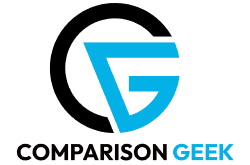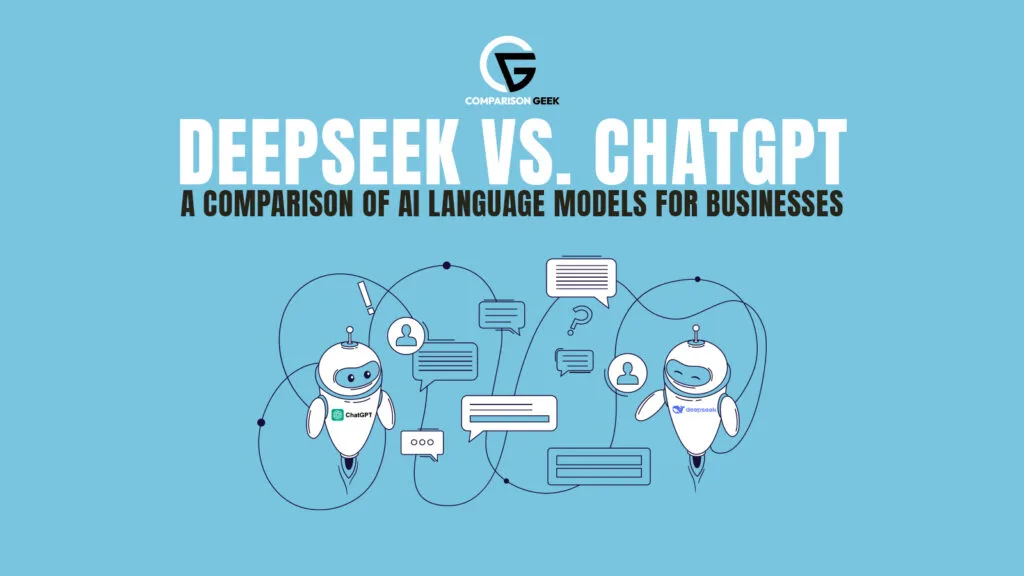Imagine a bustling startup weighing its options for AI tools. On one side, DeepSeek boasts advanced features promising tailored solutions, while on the other, ChatGPT has developed a reputation for versatility in natural language processing. When considering DeepSeek vs. ChatGPT, businesses must evaluate which platform offers the best fit for their unique requirements. In this post, we’ll explore these two AI models to see which may align best with business needs.
Table of Contents
ToggleKey Features and Functionalities of DeepSeek vs. ChatGPT
Overview of DeepSeek’s Main Functionalities
DeepSeek is designed with businesses in mind. It offers advanced analytics that helps organizations understand their data better. This feature allows users to gain insights that can drive decision-making. Additionally, DeepSeek includes a dedicated DeepSeek image generator. This tool enables users to create visuals tailored to their needs. Imagine being able to generate images that perfectly fit your marketing campaigns without needing a graphic designer!
Highlighting ChatGPT’s Versatile Capabilities
On the other hand, ChatGPT shines in language processing. It excels in generating human-like text, making it ideal for customer service and content generation. With its ability to understand context, ChatGPT can provide personalized responses. This is crucial for businesses aiming to enhance customer interaction. Furthermore, ChatGPT benefits from a large dataset training, which means it has learned from a vast array of information. This extensive training contributes to its versatility. However, the question remains: Is DeepSeek better than ChatGPT? While ChatGPT offers a comprehensive language processing model, DeepSeek may bring unique advantages depending on the specific needs of a business.
Comparison of User Interfaces and Ease of Use
When it comes to user interfaces, both tools have their strengths. DeepSeek vs. ChatGPT presents a unique comparison in this regard. DeepSeek’s interface is tailored for data analysis, making it straightforward for users focused on analytics. However, it may require some training to fully utilize its advanced features. In contrast, ChatGPT offers a more conversational interface. This makes it easy for users to interact without a steep learning curve. The simplicity of ChatGPT’s design allows users to dive right in. In summary, both DeepSeek and ChatGPT offer unique functionalities. DeepSeek is robust for analytics and image generation, while ChatGPT excels in language processing and user interaction. Depending on the business’s needs, one may be more beneficial than the other.
Evaluating Performance and Accuracy for Business Use
In the world of business, performance and accuracy are crucial. They can make or break customer interactions. This section dives into how two AI tools, DeepSeek vs. ChatGPT, stack up against each other in various business scenarios.
1. Comparison of Accuracy Metrics
When it comes to customer service roles, accuracy is key. DeepSeek boasts an impressive 95% accuracy in specific business tasks. This means it can handle straightforward queries with high precision. On the other hand, ChatGPT achieves an 85% accuracy in multifaceted queries. While it may not be as precise in specific tasks, it excels in handling diverse scenarios. So, is DeepSeek better than ChatGPT when it comes to accuracy in customer service? It depends on the type of queries being handled—DeepSeek excels in precise, straightforward tasks, while ChatGPT shines in versatility across varied scenarios.
2. Usability Tests Across Different Business Scenarios
Usability is another important factor. How do these tools perform in real-world applications? Businesses often run tests to see how well each tool adapts to different situations. For instance, DeepSeek might shine in straightforward customer inquiries, while ChatGPT can manage more complex interactions. This adaptability can be a game changer. The question arises, though: Is DeepSeek better than ChatGPT in certain use cases? It ultimately depends on the specific needs of the business, as each tool excels in different areas.
3. Feedback from Users
User feedback provides valuable insights. Many businesses report that DeepSeek’s accuracy in specific queries enhances their customer service experience. However, ChatGPT’s ability to personalize responses in real time is also highly praised.
Understanding Business Needs
It’s essential to understand the unique needs of each business. Different types of organizations may benefit from different tools. For instance, a company focused on detailed analytics might prefer DeepSeek, while one that values diverse interactions might lean towards ChatGPT. Tailored recommendations can help businesses choose the right AI for their needs. In summary, evaluating performance and accuracy is vital for businesses. A detailed assessment reveals that while DeepSeek excels in specific tasks, ChatGPT offers versatility across various scenarios. Is DeepSeek better than ChatGPT? Understanding these differences can lead to better decision-making for organizations, ensuring they select the AI that best suits their objectives.
Strengths and Weaknesses in Business Applications
In the world of business applications, understanding the strengths and weaknesses of different tools is crucial. Two prominent players are DeepSeek vs. ChatGPT. Each has unique capabilities that cater to various business needs, and comparing them can help businesses choose the best fit for their objectives.
DeepSeek’s Strengths
- Analytics Expertise: DeepSeek excels in analytics. Its focused approach allows businesses to generate tailored insights. This is especially beneficial for industries that rely heavily on data.
- Specialized Content Generation: DeepSeek can create content that is specific to the industry. This means businesses can get relevant material that resonates with their audience.
For example, a financial firm might find DeepSeek’s analytics invaluable for understanding market trends. This tool can dive deep into data, providing insights that are hard to achieve with generalist tools.
ChatGPT’s Advantages
- Diverse Customer Interactions: ChatGPT shines in handling a variety of customer inquiries. Its adaptability makes it suitable for customer service-oriented businesses.
- Versatile Task Management: From answering questions to assisting with tasks, ChatGPT can manage multiple roles effectively.
Imagine a retail business. ChatGPT can engage with customers, answer their queries, and even assist in making purchases. This versatility is a strong point for many organizations.
Identifying Limitations
However, both tools have their limitations. DeepSeek may struggle with broad inquiries. It is designed for specific analytics, which can lead to challenges when faced with general questions.
On the other hand, ChatGPT, while versatile, can produce occasional inaccuracies in specific contexts. This can be a concern for businesses that require precise information.
Utilizing the strengths of each tool effectively helps businesses identify which model suits their specific applications better. Understanding these strengths and weaknesses allows organizations to make informed decisions.
DeepSeek’s Image Generation vs. ChatGPT’s Visual Capabilities
Unique Features of DeepSeek’s Image Generation Tool
DeepSeek image generation tool is designed with a clear focus on specialized content creation. It offers high-resolution images tailored to specific user requirements. This means businesses can expect quality visuals that meet their exact needs. For instance, a marketing team can generate images that align perfectly with their campaign themes. Isn’t it amazing how technology can cater to such precise demands?
Comparative Analysis with ChatGPT’s Image Generation Abilities
On the other hand, ChatGPT primarily focuses on language generation. While it can create text-based content, its image capabilities are limited. Users might find that the images generated by ChatGPT lack the detail and resolution that DeepSeek provides. This raises an important question: when it comes to visual content, should businesses prioritize quality over versatility?
Examples of Business Use Cases for Visual Content Creation
- Marketing Campaigns: DeepSeek can produce stunning visuals that capture the essence of a brand.
- Social Media Posts: High-quality images from DeepSeek can enhance engagement on platforms like Instagram.
- Product Design: Businesses can visualize their products in various settings using DeepSeek’s capabilities.
Understanding consumer visual trends is crucial for leveraging these tools effectively. Businesses that focus on visuals must consider the differences in image generation capabilities. This can determine which AI tool is more beneficial for their specific needs.
In summary, while DeepSeek excels in creating high-quality images, ChatGPT serves a different purpose. The choice between them depends on the specific requirements of the business. Are they looking for detailed visuals or versatile text generation? Is DeepSeek better than ChatGPT? The answer to this question will depend on the business’s needs—whether they prioritize visual content creation or powerful language processing.
Determining the Right AI Tool for Your Business Needs
In today’s fast-paced world, businesses face unique challenges. Choosing the right AI tool can be daunting. To make the best choice, organizations must first assess their specific needs and goals. What do they want to achieve? Is it improved customer service, enhanced analytics, or efficient content generation? Understanding these factors is crucial.
Assessing Unique Organizational Needs and Goals
Every business is different. Some may prioritize text-driven tasks, while others might focus on data analysis. For instance, a recent study found that 60% of businesses prefer ChatGPT for text-driven tasks, while 40% lean towards DeepSeek for analytics. This data highlights the importance of aligning AI tools with business objectives.
Real-World Scenarios
When should a business choose DeepSeek over ChatGPT? It often depends on the task at hand. DeepSeek excels in analytics and data interpretation. If a company needs to analyze large datasets or generate insights from complex information, DeepSeek is the better option. On the other hand, if the focus is on generating engaging content or automating customer interactions, ChatGPT shines.
Consider a marketing team. They might use ChatGPT to create compelling blog posts and social media content. Meanwhile, the data analysis team could rely on DeepSeek to derive insights from customer feedback and market trends. In this scenario, both tools complement each other, enhancing overall productivity.
Future Trends in AI Tool Usage in Businesses
As businesses evolve, so do their requirements from AI tools. The future may see a greater integration of AI technologies. Companies will likely adopt a hybrid approach, utilizing multiple tools to meet diverse needs. This trend could lead to improved efficiency and effectiveness across various business functions.
Conclusion
In conclusion, selecting the right AI tool is not just about features—it’s about understanding the unique needs of the organization. When exploring Top Comparisons & Reviews of AI models like DeepSeek vs. ChatGPT, businesses must assess their goals and consider real-world scenarios to determine which tool best fits their requirements. This thoughtful approach will not only enhance productivity but also ensure that the chosen tools align with their strategic objectives.


